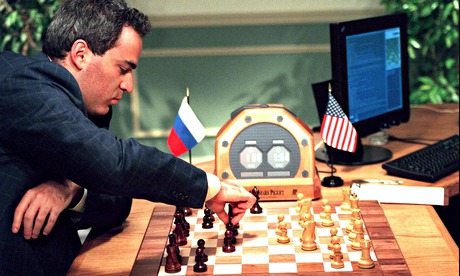- Dec 30, 2012
- 4,809

Garry Kasparov versus Deep Blue in 1997. The computer won - as Ray Kurzweil predicted. Photograph: Stan Honda/AFP/Getty Images
"Computers will be cleverer than humans by 2029, according to Ray Kurzweil, Google's director of engineering.
The entrepreneur and futurologist has predicted that in 15 years' time computers will be more intelligent than we are and will be able to understand what we say, learn from experience, make jokes, tell stories and even flirt.
Kurzweil, 66, who is considered by some to be the world's leading artificial intelligence (AI) visionary, is recognised by technologists for popularising the idea of "the singularity" – the moment in the future when men and machines will supposedly converge. Google hired him at the end of 2012 to work on the company's next breakthrough: an artificially intelligent search engine that knows us better than we know ourselves.
In an interview in today's Observer New Review, Kurzweil says that the company hasn't given him a particular set of instructions, apart from helping to bring natural language understanding to Google."
More
Last edited:
